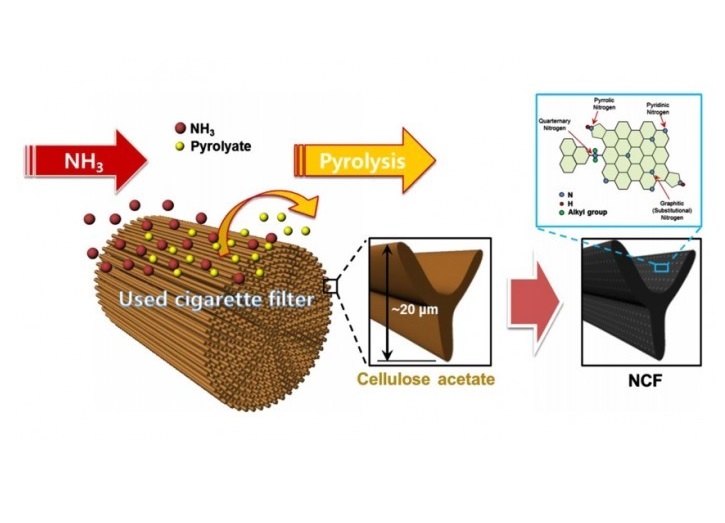Scientists at the Seoul National University have found a way to recycle cigarette butts that might be even better than this truly excellent vest of used cigarettes.

The researchers discovered a simple process that allows for the filters in cigarette butts to be used to help store energy in supercapacitors. Supercapacitors are devices that can store energy and have, as they described in the journal Nanotechnology, a “high power density, long cycle life, and short charging time.” Supercapacitors have recently been becoming less expensive, and so are replacing batteries in some data storage applications, and are being used in a “variety of high peak power and portable applications in need of high current bursts or momentary battery backup.”
Supercapacitors require a porous, stable conductor, so carbon, as one of the cheapest materials that fit these criteria, is usually used to build them. In their study, the scientists used a technique called pyrolysis to transform the cellulose acetate fibers that make up cigarette filters into a “porous carbon material.” This material is actually better for storing energy in supercapacitors than commercially available carbon.
 According to the Cigarette Litter Prevention Program, cigarette butts are the most littered item, not only in America but also worldwide. While this new use for cigarette butts might not stop the littering problem, it could certainly give cleanup efforts more of a purpose. With recycling slowly becoming more commonplace, it is great to find a way to recycle something that didn’t seem to have much potential for reuse before now.
According to the Cigarette Litter Prevention Program, cigarette butts are the most littered item, not only in America but also worldwide. While this new use for cigarette butts might not stop the littering problem, it could certainly give cleanup efforts more of a purpose. With recycling slowly becoming more commonplace, it is great to find a way to recycle something that didn’t seem to have much potential for reuse before now.
Advertisement
Learn more about Electronic Products Magazine





